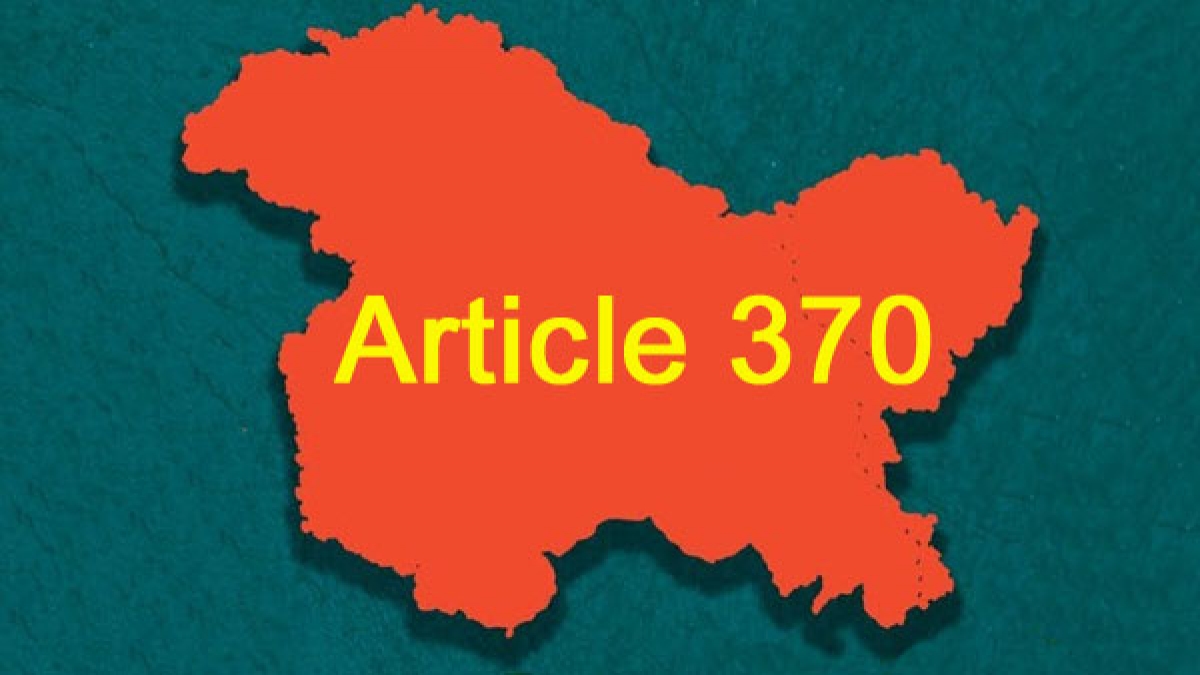Article 370 was a provision in the Indian Constitution that granted special autonomy to the state of Jammu and Kashmir. It allowed the state to have its own constitution, flag, and autonomy over internal matters, except for defense, foreign affairs, finance, and communications. This special status was intended to be temporary and was included in the Constitution to accommodate the unique circumstances under which Jammu and Kashmir acceded to India in 1947.
Over the years, there were debates and discussions about the relevance and implications of Article 370. Critics argued that it had led to a sense of separatism and hindered the development of the region. On August 5, 2019, the Indian government, led by the Bharatiya Janata Party (BJP), abrogated Article 370 and reorganized the state into two separate union territories: Jammu and Kashmir, and Ladakh.
This move was met with mixed reactions. Supporters of the decision believed that it would lead to greater integration of Jammu and Kashmir with the rest of India and promote development in the region. Opponents saw it as an erosion of the state’s unique identity and feared potential demographic changes due to the removal of special privileges.
The abrogation of Article 370 also led to heightened tensions in the region and increased security measures. The move was followed by a communication blackout, deployment of additional troops, and restrictions on movement to prevent potential unrest.
Article 370 granted special autonomy to Jammu and Kashmir within the Indian Union, but it was revoked in 2019 as part of a larger political and administrative reorganization of the region. The decision remains a topic of discussion and debate, with varied opinions on its implications for the region and its people.
Union Home Minister Amit Shah highlighted that when the Article was framed, it was mentioned in the index as “Temporary Provision of Article 370”. Even debates on the Article were missing from the records of constituent assembly debates, Shah said and added that they were not printed.
Shah said it could well be imagined that whoever had drafted it and those who were part of the constituent assembly, how intelligently they put it and how after lots of thought the “temporary” word was inserted.
“An article of the Constitution cannot be temporary, it can be amended. If you read it even today — the old Constitution, it is clearly written as Temporary Provision of Article 370,” he said.
“Article 370 is no longer in existence. It has been repealed now. But please read it. It was mentioned in the index as ‘Temporary Provision of Article 370’. If this ‘temporary’ word was not written, what would have happened. Tell me, can a provision of the Constitution be ‘temporary’,” he asked.
The Article was scrapped on August 5, 2019, a few months after Shah took charge as the country’s home minister, and the erstwhile state of Jammu and Kashmir was bifurcated into union territories of Jammu and Kashmir and Ladakh.
The home minister said that a “legislation should reflect the political will of the Cabinet or Parliament”.
“A law becomes undisputed if it is simple and clear. It (a law) should be framed in a way that the court does not need to make any explanation. When there is no need for any court to give any explanation to any law, that is a medal for you. Our aim has to be to draft a law as simple and clear as possible,” Shah said.
For the purpose of vote banks politics mr Amit shah alleged article 370 was retained
Impact on India
Unity in Diversity: Abrogation of Article 370 exemplified India’s commitment to acknowledging and celebrating its diverse population and cultures.
By scrapping special provisions for Jammu and Kashmir, the Indian government demonstrated its willingness to accommodate regional variations while maintaining the larger unity of the nation.
Case Studies:
1. Tourism and Artisan Industries: The region’s autonomy played a role in attracting tourists who were drawn to its distinct cultural and natural attractions. Additionally, traditional artisan industries benefited from the autonomy, as they could continue producing and selling traditional crafts that were reflective of the region’s cultural heritage.
2. Environmental Conservation: The abrogation of Article 370 allowed Jammu and Kashmir to implement environment-specific regulations and policies. This autonomy was particularly important in a region known for its ecological significance, enabling the state to address environmental challenges while balancing development needs.
3. Land Reforms and Agriculture: The scrapping of Article 370 empowered the state to implement land reforms that were suited to its unique agricultural landscape.
Conclusion:
The scrapping of Article 370 introduced positive impact across Jammu and Kashmir.It helped in shaping various perspectives and debates, its and preserving identity, managing resources, promoting economic development, and supporting participatory democracy. The case studies provides how the binning of Article 370 contributed to overall growth and well-being of Jammu and Kashmir.













